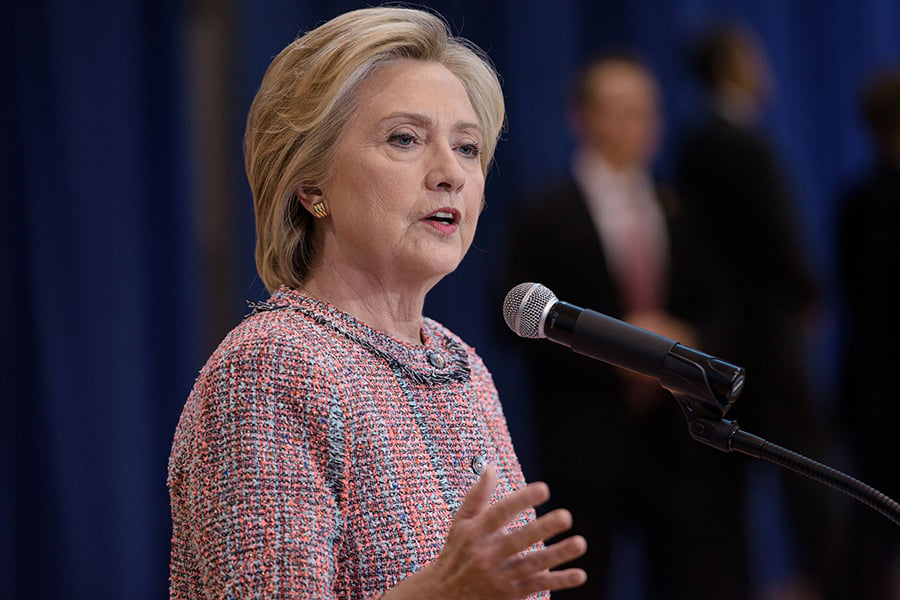By fall 2016, I had pretty much given up trying to get an answer from Donald J. Trump's presidential campaign about its position on the Labor Department's fiduciary rule.
Then in October, I saw Anthony Scaramucci in the lobby of the Mayflower Hotel in Washington. Mr. Scaramucci had just moderated a panel at a securities conference I was covering.
I knew Mr. Scaramucci was a fundraiser for Mr. Trump, so I sidled up to him and asked what the campaign thought of the DOL rule. He promised
Mr. Trump would "repeal" it.
Whatever, I thought. The chances of Mr. Trump being elected were remote, right? A couple weeks later, Mr. Trump stunned almost everyone by beating Democratic presidential nominee Hillary Clinton.
Although Mr. Trump couldn't "repeal" the Obama-era DOL rule, it is now dead thanks to his administration's giving up the fight to protect it in court. On Thursday, the U.S. 5th Circuit Court of Appeals
issued a mandate confirming its March 15 split decision to strike down the rule.
If Ms. Clinton had been elected, the Department of Justice, on behalf of the DOL, would still be fighting — especially because the rule had been upheld by other courts.
"In a Clinton administration, I anticipate that the DOL would have appealed the [5th Circuit's] decision," said Elizabeth Kelly, former special assistant for economic policy in the Obama White House and the point person on the DOL rule. "I continue to think the case was wrongly decided. The other courts who have heard [lawsuits against the DOL rule] have disagreed with the 5th Circuit."
If Ms. Clinton were president, Ms. Kelly's attitude reflects what likely would have been a strong defense of the rule that would have begun with a motion to get a rehearing of the 5th Circuit decision by the full court, rather than just the three-judge panel, and might have continued with an appeal to the Supreme Court.
"It's very clear that as of June 21, the rule would not have been dead," said Andrew Oringer, partner at Dechert.
He cautioned that it's impossible to predict its ultimately fate. There are too many unknowables, such as whether an
appeal to the full 5th Circuit would have been successful or whether the Supreme Court even would have taken up the case.
But Ms. Kelly, a former 5th Circuit clerk and now senior vice president for operations at United Income, said the rule would have survived in court if it had backing from the administration. She said the Obama administration followed administrative procedures to the letter.
"The DOL did an exemplary job on the rule," she said.
Erin Sweeney, shareholder at Miller & Chevalier, liked the rule's chances at the nation's highest court.
"If Hillary Clinton had been president and the fiduciary rule had gone to the Supreme Court, it likely would have passed muster," she said.
Like everything having to do with the DOL rule, opinion is split on that point.
Joshua Lichtenstein, partner at Ropes & Gray, said a Clinton administration might have thought twice about turning to the Supreme Court because of the possibility that a ruling would have limited the administration's authority to interpret a statute.
But what we can conclude is that the presidential election had an enormous influence on the DOL rule's lifespan.
For instance, there is speculation that one of the reasons it took so long for the 5th Circuit to issue the mandate killing the rule is that one of the judges in the
17-judge court put a hold on it and was trying to convince a majority of his or her colleagues to rehear the case.
That polling was being done in a court that had already been influenced by Mr. Trump.
"The math was always going to be difficult for a rehearing given President Trump's four recent appointments," Ms. Kelly said.
The next time you're thinking about skipping a presidential election, remember the DOL fiduciary rule. Whether you love it or hate, your vote on the Oval Office occupant made a difference.







